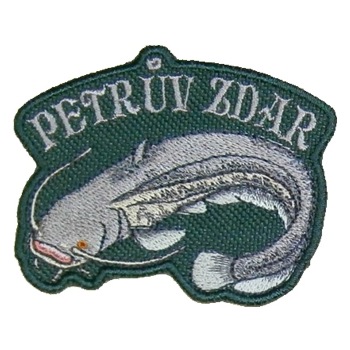In Germany fishermen greet each other with "Petri Heil". I asked myself if this is only a German thing or is it kind of universal (at least in developed countries like EU countries, US etc.) for fishermen?
-
Do you know any other German-language expressions which are "accepted around the world"?– BeanlucCommented Jun 22, 2018 at 0:00
-
1@Beanluc the question is basically if this is "German" or "fisherman language". And yes, I know a lot including "Autobahn", "Kindergarten", "jawohl", "nein" etc.pp. There is even a rather similar greeting to Petri Heil but that is not something I'm going to mention or using in general.– OddDeerCommented Jun 22, 2018 at 5:18
-
1@Beanluc: the question isn't as weird if you consider that "heil"-like words are fairly common to many Germanic languages (with very similar meanings, compare heil, whole, heal, hale), e.g. you can directly substitute the English greeting "Hail" (and AFAIK other Germanic languages had (have?) similar greetings).– cbeleitesCommented May 24, 2019 at 18:00
-
1Petri Heil and Petri Danke are correct. As an American, I was required to know the greeting and response, along with many other related items, prior to being issued my fishing license.– user26273Commented Feb 18 at 12:53
-
In which country did you need to know that?– Willeke ♦Commented Feb 18 at 13:51
7 Answers
I grew up in Italy, in a fishermen's village on the Adriatic Sea. I never heard this expression, and I am pretty sure I've never heard it anywhere in the Mediterranean. Furthermore, I think that a "HEIL" in the southern European seas is one of the most non-local and foreign-sounding expressions that I can imagine. So please don't even try it :-)
-
1
-
2Yet I've heard "Berg Heil" (Italian pronounciation: Bergail) frequently in the Italian Alps... I think the most direct Italian translation of "Heil!" would be "Salve!". Commented May 24, 2019 at 17:28
This answer is based on the meaning of "Petri Heil", I have hardly any first hand knowledge of the use of this phrase.
For starters it is certainly restricted to countries where the majority religion is christianity, as "Petri" is a reference to the biblical fisherman Petrus (Luke 5.1-11 and John 21.1-14).[1]
Then "Heil" is a somewhat outdated German noun used as a greeting. In general it is positive expression, meaning a broad range of things like good fortune, health, success, ... It is derived from "heilig" which is "holy".[2] So the German origin makes it likely that this is only used in German speaking parts of the world. However there are German expressions in English and probably other languages. Generally in technical language you can often find terms from foreign languages. So this is not conclusive.
Combining the two "Petri Heil" means something like "I wish you just as much success as fishing as the biblical Petrus had". At least technically, I guess hardly any fisherman will actually know this.
[1] https://de.wikipedia.org/wiki/Petri_Heil
[2] https://de.wikipedia.org/wiki/Heil
-
4Oddly, Peter was famously bad at fishing sans divine intervention. Commented Aug 9, 2016 at 14:33
-
@OrangeDog Was he? I actually don't know the stories... If you want to fill in some information about it, that would be great.– imsodinCommented Aug 9, 2016 at 14:35
-
1@OrangeDog he's had a bad day, but he could feed his company just fine outside of that case. What makes you believe he wasn't a good fisherman? Commented Aug 9, 2016 at 15:10
-
2Being an amateur fisher in Switzerland, I can tell you that it is used, quite frequently actually. In fact, the largest local fishing magazine I'm aware of goes by that name: petri-heil.ch– SBICommented Aug 10, 2016 at 6:47
-
2@ikdc - that greeting means something entirely different!– Rory Alsop ♦Commented Jun 22, 2018 at 11:29
In case you do not mind a regional-based mutation, among Czech fishermen a very similar greeting can be heard: "Petru zdar!" or "Petrův zdar", which has the same meaning as "Petri Heil". However, I suppose the Czech analogue actually comes from German as the Czech language used to be influenced by German in the past.
I grew up in a fishing community on islands north of Scotland, and never once heard this. The folks up there used English and Norse greetings, but not a German one, so I would imagine it is German-specific.
So Universal? No.
In English, a common greeting used would be "Tight Lines", more on exiting the area than entering, to wish others luck. Although not a literal translation, it is considered equivalent.
I moved to Germany in 2018 and had a chance to talk to a few fishermen. I asked them what should I say to a fisherman when greeting him and they told me “Petri Heil”, so I suppose they still use it, but may be not all of them. I live near Luxembourg border, so may be this is a regional thing.
I'm a Canuck. My father in law is German and lives there. Whenever he speaks to my wife, he has her tell me Petri Heil, knowing we both fish. Neither of us speak the other's language though I have picked-up on a few, ahem, choice words here and there. The common greeting here is "Tight Lines", the meaning should obvious. Tight lines meaning "fish on" or, I wish you much luck :) And I do believe the answer to Petri Heil is Petri Danke.
